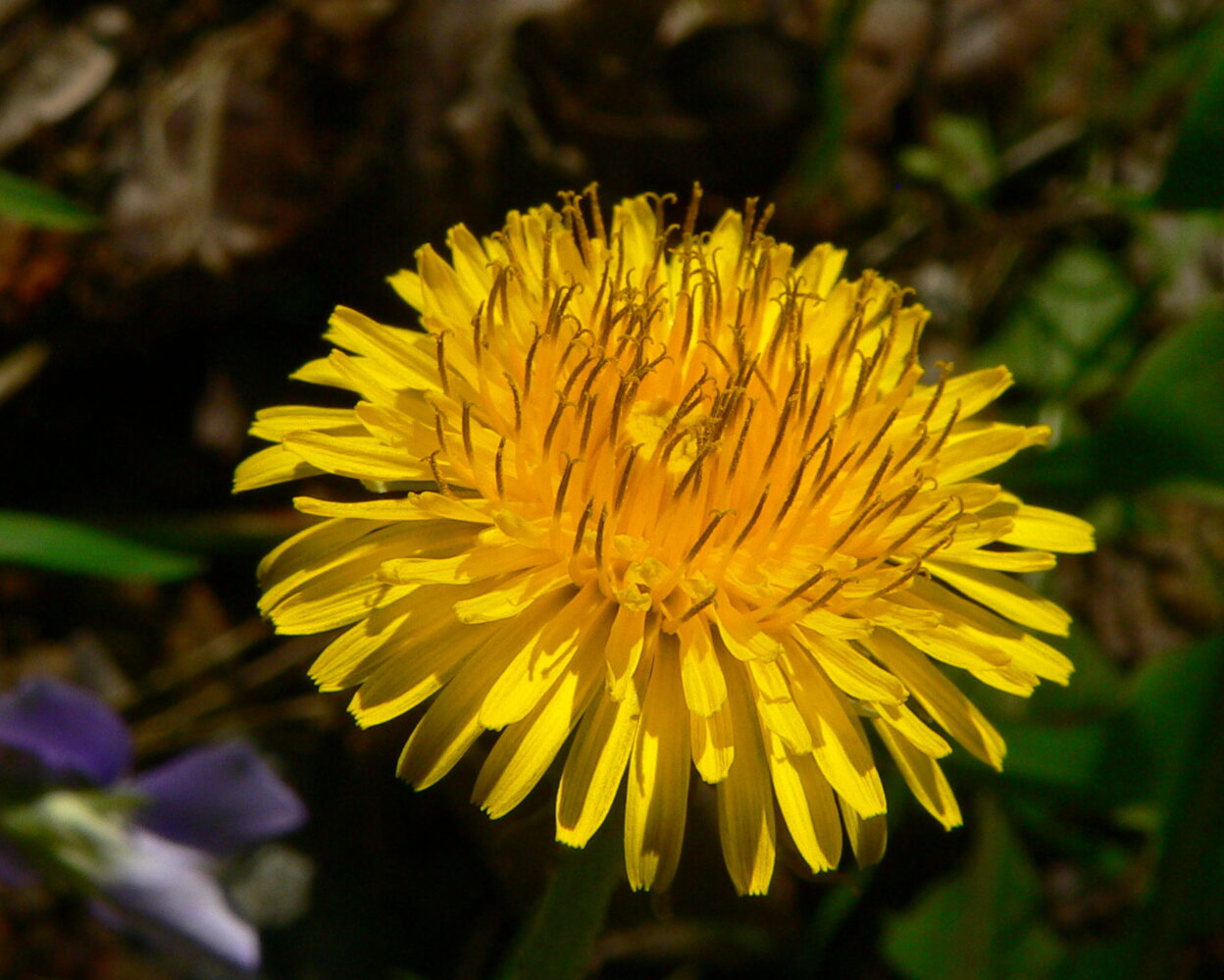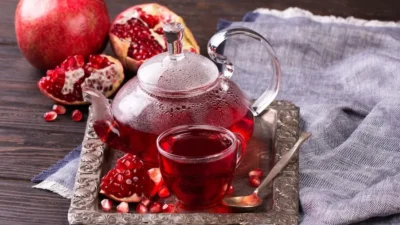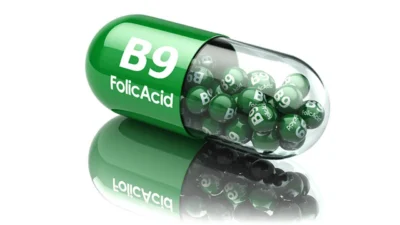Dandelion, also known as Taraxacum in some regions, is a natural herbaceous plant that grows densely along the ground. It is distinguished by its shiny green leaves and beautiful yellow flowers that enhance the beauty of gardens and meadows.
Dandelion is a perennial plant that continues to grow throughout the year, making it a desirable crop in moist and fertile regions around the world.
Benefits of Dandelion:
1. Enhancing General Health
Fresh dandelion leaves are rich in essential vitamins and minerals for human health.
They are an excellent source of vitamin C, which boosts the immune system and helps fight diseases effectively.
They also contain vitamin A, essential for eye and skin health, making dandelion a great option for overall wellness.
2. Supporting the Digestive System
Dandelion roots are one of the most valuable parts of the plant. They contain cleansing compounds that help improve liver function and detoxify the body.
Dandelion root tea is used in traditional medicine to support digestion and relieve systemic inflammation.
3. Strengthening Bones and Teeth
Thanks to its calcium and magnesium content, dandelion is beneficial for bone and dental health.
These minerals help maintain bone strength and reduce the risk of osteoporosis in at-risk individuals.
4. Supporting the Immune System
Dandelion is a rich source of vitamin C and other antioxidants that enhance immune system function and reduce the risk of viral and bacterial infections.
Therefore, regular dandelion intake is essential for maintaining overall health, especially during winter and disease outbreaks.
Uses of Dandelion:
1. Culinary Use:
Fresh dandelion leaves are used as a main ingredient in green salads and natural juices to add a refreshing and nutrient-rich flavor.
The leaves can also be juiced to extract dandelion juice, which is packed with health benefits and a great source of vitamins and minerals.
2. Medicinal Use:
Dandelion root tea is used in traditional medicine to treat digestive disorders and generally improve digestion.
It is also used to cleanse and improve liver function, making it an effective natural remedy for digestive issues.
3. Skincare Use:
Dandelion extracts are used in skincare products to soothe and moisturize the skin and reduce inflammation caused by acne and eczema.
It also has antibacterial properties that help maintain skin freshness and overall health.
How to Harvest and Prepare Dandelion?
To gain the most from dandelion’s benefits, it’s best to harvest its leaves and roots during spring and summer when the plant is at its peak.
After washing the leaves well, let them dry naturally. They can be used fresh in cooking or dried for later use in teas and herbal remedies.
History and Cultural Significance of Dandelion:
Dandelion has a long history in both medical and culinary uses. It has been used in folk medicine since ancient times to treat various diseases and disorders.
In many cultures, it was considered a symbol of health and beauty and was used in rituals and celebrations due to its nutritional and medicinal value.
Habitat and Spread:
Dandelion is a native plant that thrives in most moist regions worldwide. It grows abundantly in gardens, meadows, and farmland.
It is ideal for organic farming due to its adaptability to diverse environments.
Dandelion in Folk Medicine:
Dandelion has a long record of use in traditional medicine worldwide, especially for improving digestion, reducing inflammation, and enhancing general health.
Dandelion as an Energy Source:
Dandelion roots contain high levels of biodegradable carbohydrates, making them a potential energy source in wild plant ecosystems.
They were traditionally used as food by indigenous tribes in some regions.
Dandelion and Sustainability:
Thanks to its rapid growth and easy propagation, dandelion is beneficial for sustainable farming and local ecosystems.
It helps improve soil quality and retain moisture, supporting biodiversity and environmental health.
Dandelion in Culture and Art:
Dandelion has a rich presence in popular culture, where it has served as food, medicine, and even an artistic symbol.
It is seen as a representation of health and beauty, often appearing in visual and decorative arts to celebrate nature and life.
Dandelion in Food Innovation:
In modern times, dandelion is used in innovative food products such as green beverages and organic salads to boost their nutritional and health value.
Risks of Using Dandelion:
Despite its well-known health benefits, dandelion may cause adverse reactions in some individuals, especially those allergic to certain compounds in the plant.
It is always recommended to seek medical advice before consuming it intensively.
Industrial Uses of Dandelion:
Beyond food and medicine, dandelion is also used in biological and chemical industries as a source of plant fibers and natural raw materials.
Future and Research:
Dandelion continues to be a subject of ongoing research to better understand its full range of health benefits and potential applications in developing new medical treatments and enhanced food products.
Nutritional Values of Raw Dandelion (per cup):
- Potassium – 217 mg
- Calcium – 102 mg
- Iron – 1.6 mg
- Folic Acid – 14.7 mcg
- Vitamin C – 19.3 mg
- Vitamin A – 279 mcg
How to Make Dandelion Tea?
Add one teaspoon of dried dandelion to a cup of boiling water and let it steep.
How Much Dandelion Should You Consume?
It is recommended to drink no more than two cups of dandelion tea per day.
Excessive consumption may cause unwanted effects.
Individuals taking medications like blood thinners or diuretics should consult a doctor before starting to use dandelion, as it may interact with other medications.
What Conditions Does Dandelion Help With?
Dandelion is particularly beneficial for liver health and is also known to be helpful in treating edema, constipation, and preventing gallstone formation.
Conclusion:
Dandelion is a valuable addition wherever it grows—whether in private gardens or wild environments.
It combines natural beauty with numerous health benefits, making it an indispensable part of humanity’s natural and nutritional heritage.
People are encouraged to recognize its medicinal and nutritional value and use it properly, with medical consultation if necessary.
It is recommended to include dandelion in the daily diet to maintain overall health and well-being




